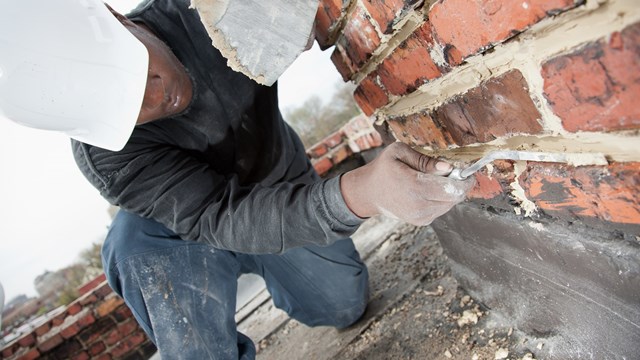
Pressured by community association advocates throughout the Sunshine State, the Florida Legislature backed off a proposed bill (HB 5005) that would have eliminated licensing for community association managers and deregulated the industries overseeing condominiums, HOAs, mobile homes, timeshares and cooperatives.
The legislation was part of an effort by the legislature and Republican Gov. Rick Scott to deregulate more than 50 industries and reduce state oversight and regulation. The bill also would have dissolved the Division of Florida Condominiums, Timeshares, and Mobile Homes, along with hundreds of jobs, and put into the state’s operating budget coffers the division’s $6.1 million trust fund that is used for enforcement actions, funding an office of condominium ombudsman and the alternative dispute resolution program that benefits homeowners.
The two proposed committee bills (now known as HB 5005 and HB 5007) easily passed the legislature’s House Business & Consumer Affairs Subcommittee on March 15, and were next up before the House Economic Affairs Committee on March 24. The aim of HB 5007 is to streamline and reduce current regulations in the affected industries.
The Community Associations Institute (CAI) representing Florida’s chapters sent out a legislative alert to their membership urging opposition to HB 5005—the deregulation legislation. They requested that members contact the Speaker of the House Dean Cannon, and members of the Economic Affairs Committee and let them know of CAI’s opposition to the bill. “It is important that they hear not just from CAMs, but also from the community associations that employ CAMs,” the alert said.
A Victory for HOAs and
Community Associations
Donna DiMaggio Berger, Esq., managing partner of Fort Lauderdale-based Katzman Garfinkel and Berger, and executive director of the Community Advocacy Network (CAN), also sprung into action, mobilizing her HOA membership within the community association profession. Collectively, they urged legislators that deregulation would have had grave consequences for HOAs and community association managers.
The House Economic Affairs Committee voted 12-6 to remove provisions relating to condominiums, HOAs and the community association management profession from the bill, much to the delight of Berger and her constituency.
“Well, obviously I'm delighted,” Berger said in reaction. “We had been gearing up for a much lengthier battle, and the fact that were able to get a proposed committee substitute in two weeks to take out all the language deregulating community association managers in Florida as well as eliminating the division—it's incredible.
“And I blogged about it the other day—it just goes to show when you got a group that is well-informed and organized what they could do. We created the Community Advocacy Network back in 2007 and we were gearing up for what I call 'the big one'—and I think ripping out the framework qualifies as 'the big one.' And it's nice to know when you create systems and when they finally get into play that they work and I think that it shows it works. Before now, ordinary citizens didn't have the ability to quickly mobilize and become a part of the process and really make change,” Berger said.
She noted that the dereg bill is still moving forward in the legislature and a number of other professions are proposed to be deregulated. The fact that community association residents were able to mobilize so quickly and were so organized is the primary reason that they're no longer part of that package, she said.
HB 5005 if not further amended would repeal licensing and examination requirements and penalties for specified professions, occupations, and businesses currently regulated by the state, including the following: Athlete Agents; Auctioneers and Auctioneer Apprentices; Sellers of Business Opportunities; Charitable Organizations; Hair Braiders, Hair Wrappers and Body Wrappers; Dance Studios; Health Studios; Interior Designers; Intrastate Movers; Motor Vehicle Repair Shops; Sellers of Travel; Telemarketing, and Yacht and Ship Brokers. It also includes provisions related to water vending machines; television tube labeling, and sales representative contracts.
Berger said that it was part of their job to educate legislators about community association living. She said the bill sponsor is from Hialeah, which is not home to a lot of associations. “It's our job at CAN and other groups around the country to educate our public policy makers who might not have a lot of associations in their district. Maybe they have never lived in an association. Maybe they don't have a lot of familiarity about how associations are run or what they mean.”
Could Have Been a Sea Change for Condos
“If this monster deregulation bill passes with the condominium and CAM provisions intact, life would change dramatically for the more than 55,000 community associations in our state,” Berger said prior to the most recent committee action removing the deregulation provisions.
“Condominium owners would no longer have the division to turn to as a source for alternative dispute resolution pertaining to election and recall disputes and financial improprieties. Similarly, HOA owners would no longer be able to ask the division to sort out their election disputes. Most of those disputes would wind up in our court system to the undoubted dismay of a Florida Judiciary already struggling with clogged court dockets,” she said.
Now that the battle has been won, and joking that she now has “free time,” Berger cautions that the fight is not over. With 41 days left in the legislative session, there are more than a dozen bills that CAN is still tracking, she said. For example, one bill would have allowed process servers access unannounced in common elements and limited common elements. So CAN alerted the bill sponsor, Sen. Gwen Margolis, (D-Broward, Miami-Dade), that some high rise and condominium developments had private elevator access that open up directly into a person’s unit. Subsequently, because of their intervention, the language was changed in the bill.
Kenneth S. Direktor, a shareholder with the Fort Lauderdale law office of Becker & Poliakoff, also was happy that legislators had a change of heart.
“I am very pleased with that outcome,” said Direktor, “and it shows that the legislators are responding when they hear from their constituents, because there was a substantial volume of emails and phone calls and faxes in response to the alerts that were sent out that told people about this bill. The legislators heard loud and clear that this was simply not a good thing for millions who live in Florida condos and co-ops.”
It was important to keep the licensing and enforcement framework intact, he said. If the bill had passed as intended, the failure to monitor the situation or provide boards with some oversight would clearly have been a recipe for disaster, according to Direktor. “These boards are so vulnerable to abuse, whether it be through deliberate action or inadvertence. It is far too important an industry in Florida with well over 40,000-50,000 community associations operating in this state—it is far too important for them to be able to have competent management for this industry to be completely unregulated.”
It is good news that the division will still be available to mediate disputes, he said, and not funnel everything to the courts. “Absolutely, unequivocally. Not to mention the fact to having the division available to continue to arbitrate certain disputes is a good thing again for all the reasons I gave you last week because it gives us a forum of people who are actually trained on community association issues as opposed to judges who have to master all the legal issues. And it gives us a forum of people, who are able to expedite these resolutions so these disputes can be handled without the incredible time delay and expenses associated with court litigation.”
Florida’s community associations still have a lot of things on their plate, including the state’s financial crisis, so this is one less thing to worry about, said Direktor.
“There's a lot of other things that are still pressuring community associations, the most notable is the foreclosure crisis,” Direktor explained. “But the fact is, I think this is one additional piece of legislation, which could have created more problems that it solved. And I think maybe you're correct when you say a sigh of relief because we don't need any more problems. We're having a tough enough time collecting our assessments, paying our operating expenses, and complying with the intense regulatory framework that already exists without having to do so without have the ability to rely on our management to have licensure.”
Leslie Kaminoff, the CEO of AKAM On-Site, Inc., a Boca Raton-based management company which also has offices in New York City, said he supports licensing of community association managers and believes the state is going about deregulation the wrong way. Deregulating certain professions might be advisable but not property managers, Kaminoff said.
“I can understand that for a barber shop, for a cosmetologist, but for someone who’s responsible for a $40 million dollar condominium? That’s why when I look at that list of who’s included, community association managers shouldn’t even be in the list,” said Kaminoff.
He is happy that the legislature reconsidered. “Now that the state has spent some time looking into this matter, I hope they are acknowledging that property management is a true profession and must be treated as such,” Kaminoff said. “In my opinion, this means finally putting gin place meaningful licensing and education requirements that make a real contribution to the quality and value our industry brings to itself and to our clients.”
Kaminoff continued, “The practice of property management puts us in a true fiduciary position. I hope that’s what the Florida State Legislature saw and understood when they re-thought the possibility of removing these requirements from our profession.”
Leave it Alone
The current framework allows homeowners to pay for services provided by the Division of Condominiums, Timeshares, and Mobile Homes. Currently, according to Berger, condominiums pay a $4.00 per unit fee to the division trust fund to pay for the division's functions such as education and arbitration. Every year in recent memory, she added, the trust fund had been raided by various governors to address the budget deficit. If the bill passed and the division was eliminated, there would no longer be a $4.00 per condominium unit fee. Any monies currently remaining in the division trust fund would have been earmarked towards general revenue and not be returned to the owners who paid into the fund, she noted.
While the existing system was not foolproof it was better than no regulation at all. “State oversight of the community association management industry was not perfect but it was a deterrent to bad behavior. Doing away with regulation altogether will most likely provide fertile ground for fraud to flourish especially here in the Sunshine State, which has a long history of being attractive hunting ground for fraudsters.”
Community association managers have an important job to do and taking away licensing in a way reduces the industry’s credibility, Direktor said. “I think requiring some licensure for community association managers, which obviously requires prerequisites in order to get a license—I think it provides a measure of protection that would otherwise not exist. I think it helps when I'm hiring a manager for me to able to say, ‘Show me your state issued license,’ the same way I ask that question of a lawyer or a doctor or engineer or an accountant.
Kaminoff added that he “stands in favor of licensing that is meaningful and whatever elevates the industry to a real position of professionalism.”
A Dead Issue?
Is Berger worried that deregulation will rear its ugly head again? Well, she plans to reach out to legislators to make sure the concerns of community associations continue to be addressed.
“If it hadn't been such a swift and decisive defeat two weeks in, I'd say maybe it'll come back again next year,” she said. “I think legislators are starting to understand that these are very emotional issues. We've got millions of people living in common-interest ownership communities in Florida., more than 60,000 associations in our state. Do I think that it will come back to continue tweaking the framework? Absolutely and CAN has reached out to all the legislators and said, ‘We want to sit with you after the session’ because, look, there are many changes and improvements we can make, but ripping out the whole framework is not the answer.”
If HB 5005 and HB 5007 are eventually passed and signed by Gov. Scott, the bills would take effect July 1, 2011.
Debra A. Estock is managing editor of The South Florida Cooperator. Editorial Assistant David Chiu contributed to this report.






Leave a Comment